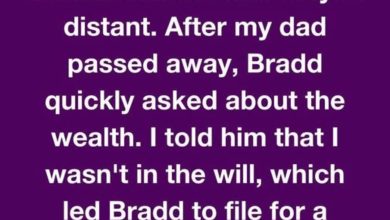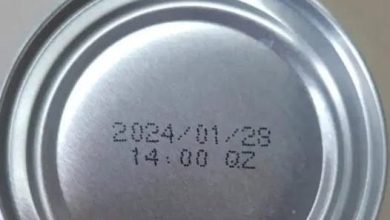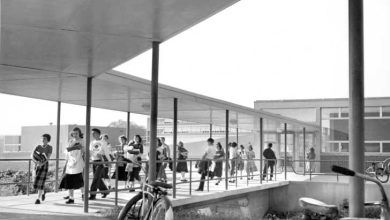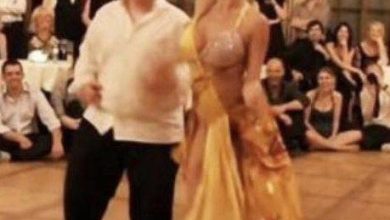AFTER A YEAR OF LIVING ON THE STREETS A COP SHAVED MY FACE, GAVE ME CLOTHES
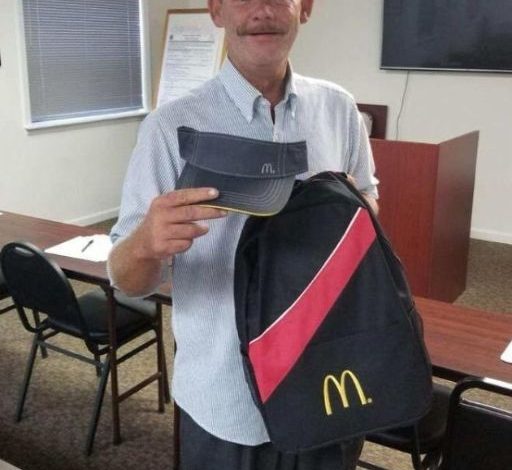
A year ago, I never imagined I’d be working at McDonald’s. It wasn’t that I thought I was above it; it’s just that I didn’t think I would survive being homeless. A series of unfortunate events led to my losing everything. A layoff led to missed rent, which resulted in eviction. Then came shelters, sleepless nights, and the constant struggle to stay clean. When you’re homeless, people often ignore you. You feel like you’ve lost your humanity.
Last week, Officer Gaines stopped me outside a gas station. I expected the usual: a warning to move on, maybe a ticket I couldn’t pay. Instead, he knelt beside me and asked, “You looking for work?”
I almost laughed. Who would hire someone who hadn’t showered in days? But he didn’t wait for my response. He pointed across the street to McDonald’s. “They’re hiring. If you clean up, you might have a chance.”
I shrugged. “Even if I had an interview, I have nothing to wear.”
That’s when he told me to get in his car. I hesitated. Police hadn’t been kind to me in the past. But there was something in his voice—not a demand, but an offer—that made me take the chance.
He drove me to a barbershop and paid for a shave and haircut. Then, he gave me a bag of clean clothes—just jeans and a button-down shirt, but better than anything I owned. “You have an interview tomorrow,” he said. “Make it count.”
And I did.
I sat across from the manager, incredibly nervous, but I told the truth. I’d had some difficult times, but I was ready to work. He must have believed me because he smiled and said, “Can you start Monday?”
I left with a job. And when I turned on my phone at the library, I had a voicemail from Officer Gaines.
“Let me know how it goes.”
I thought that was the end of it: a job, a fresh start. But three days later, I discovered why he had really helped me. And now… I’m not sure what to do.
Three days after my first shift, I was cleaning tables after closing when I saw him outside. Officer Gaines was leaning against his car, arms crossed, watching me through the window. I almost thought I was in trouble—old instincts kicking in. But when I went outside, he just handed me a coffee.
“Walk with me,” he said.
We walked in silence for a while. The streets were quiet then, just the occasional car passing by.
“You know,” he said, “I once had a brother. His name was Mark.” He took a sip of his coffee, looking at the sidewalk. “Mark was smart. He could talk his way into or out of anything. But he had a problem.”
I listened quietly.
“Gambling. It started small, like it always does. A few bets, some wins, some losses. But then it got bad. Really bad. He lost his job, his apartment. He ended up on the streets.”
Something about how he said it made my chest feel tight.
“I was a rookie cop back then,” he continued. “I thought if I was tough on him, he’d wake up. I told him to get his act together. That I wouldn’t help him until he helped himself.”
He sighed slowly, as if trying to release a heavy burden. “I didn’t see him for two years after that.” He looked at me then, his eyes darker under the streetlights. “When I finally found him again, he was already gone. He died on the streets. Alone.”
I swallowed hard.
“That’s why I do this,” he said. “I couldn’t save him. But maybe I can save someone else.”
I didn’t know what to say. This wasn’t a cop telling a homeless man a story to make himself feel better. It was personal. Real.
“Come with me,” he said, gesturing towards his car.
I hesitated. “Where?”
“You’ll see.”
We drove across town to an old church with a community center behind it. Inside, volunteers were setting up cots, folding blankets, and preparing food. Homeless people were arriving, some alone, some in groups.
“I come here every week,” he said. “I try to help those who aren’t too afraid to let me.”
I watched as he greeted people by name, gave out coffee, and shook hands. They didn’t look at him the way I used to look at police. They looked at him like he was one of them.
That night, I stayed. I helped serve food, listened to stories, and cleaned up afterward. And when I left, I knew I wasn’t just leaving. I was coming back.
That was months ago. Now, I work my shifts at McDonald’s, but every night after, I go to the shelter with Officer Gaines. We help people find jobs, get clean clothes, and connect with resources. Some of them succeed. Some don’t. But we try.
I used to think I was invisible. That no one saw me, no one cared. But one person did. And because of him, I can be that person for someone else.
If you’ve ever walked past someone on the street and looked away, I understand. I used to be that person too. But next time, maybe stop. Say something. Offer a meal, a kind word. You never know whose life you might change.
Because sometimes, all it takes is one person to see you.
If this story touched you, please share it. You never know who might need to read it today.

